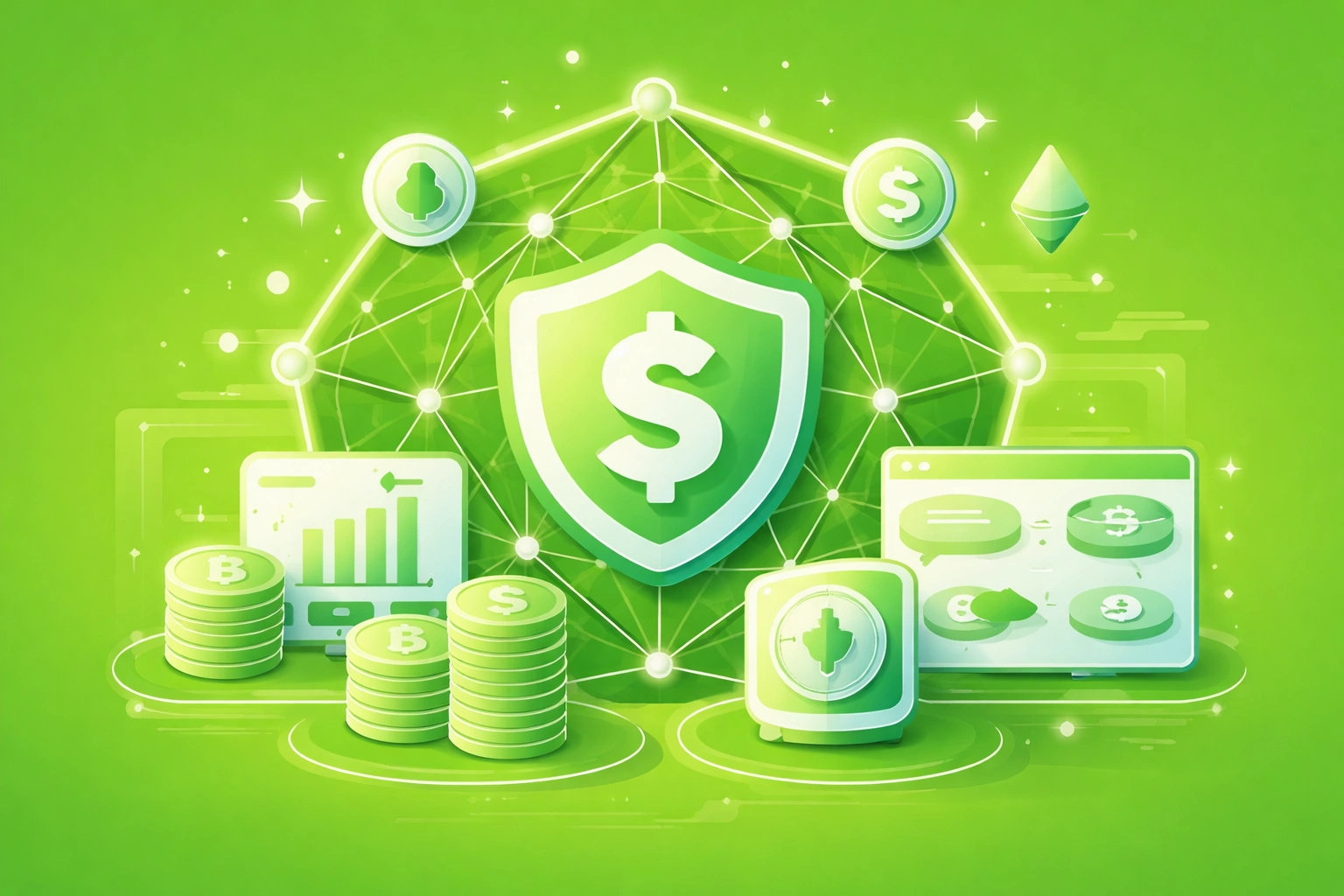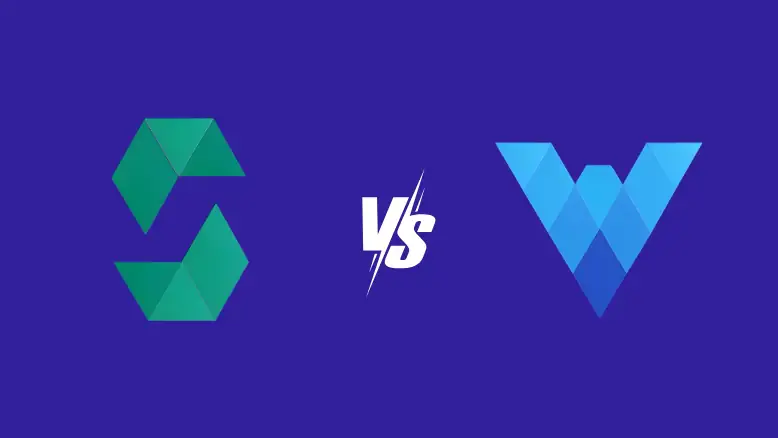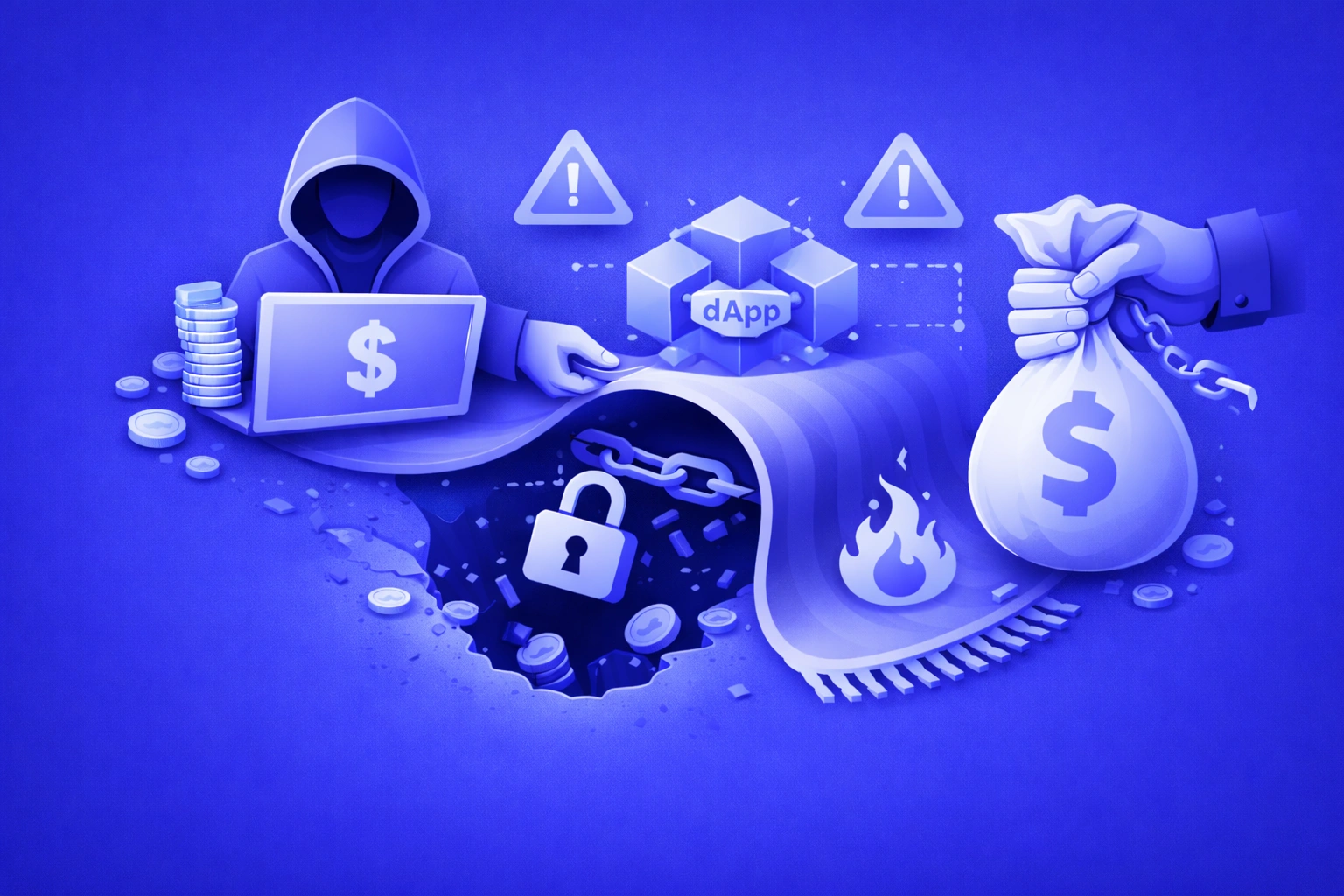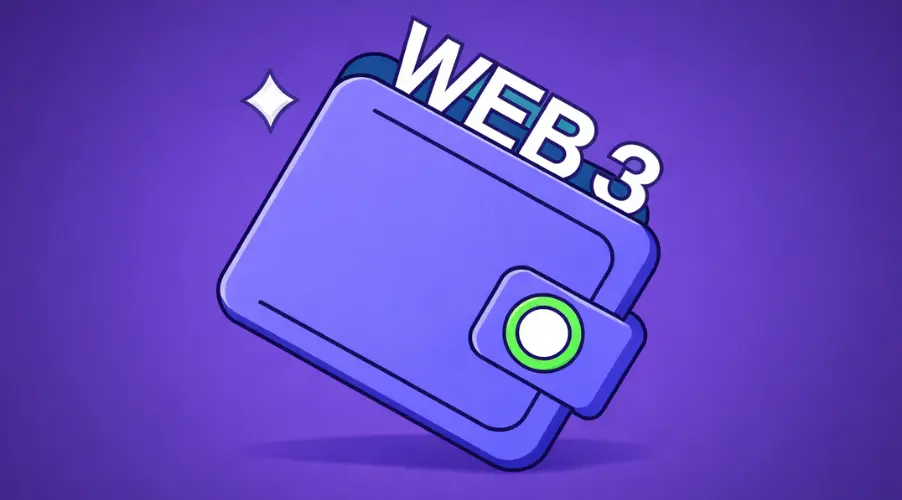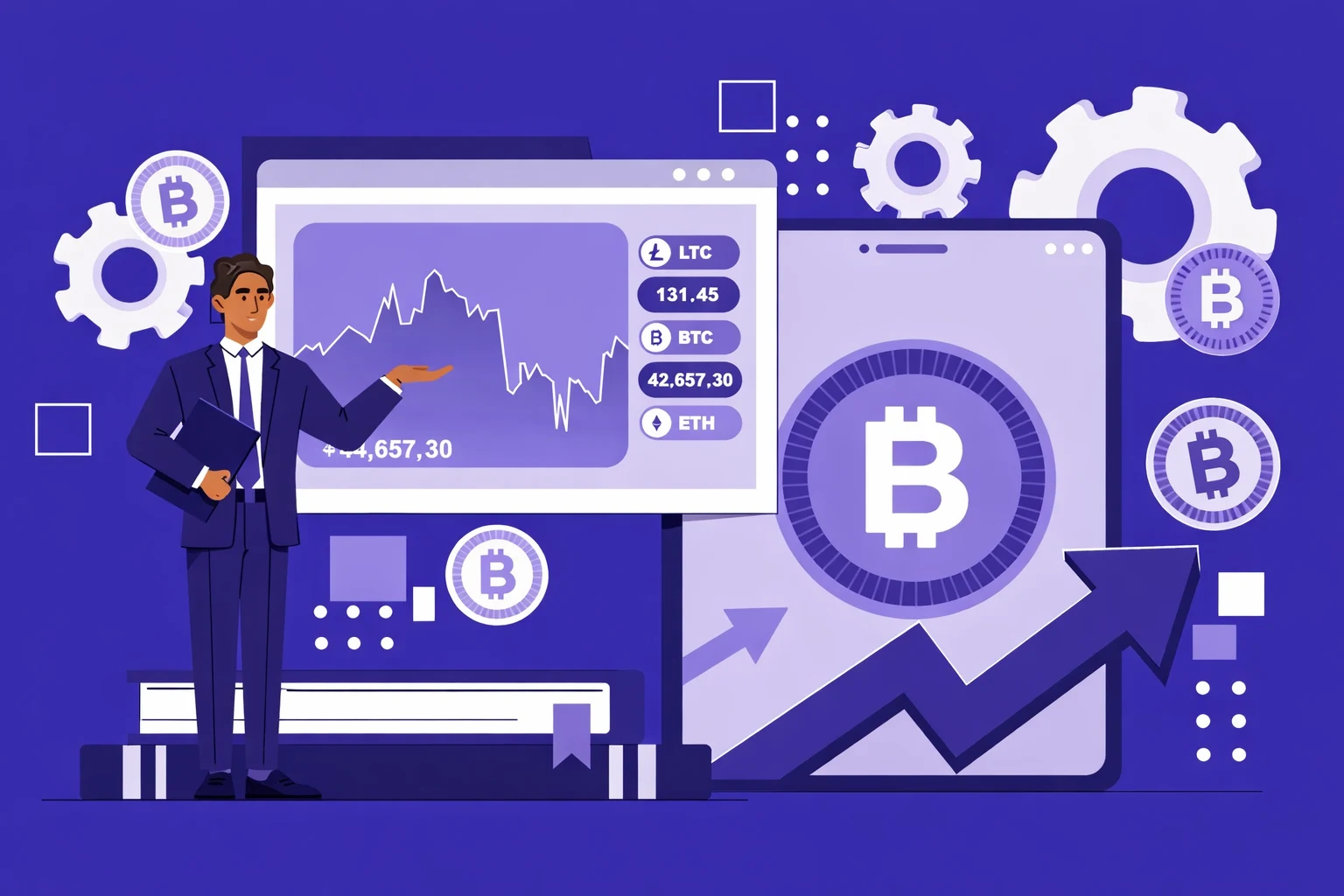Key Takeaways
- Decentralized finance in DEX platforms eliminates intermediaries, enabling peer-to-peer trading with complete user control over assets and transactions.
- Smart contracts automate all DEX operations including trade execution, liquidity management, and reward distribution without human intervention or trust requirements.
- Automated market makers replace traditional order books with algorithmic pricing, enabling continuous liquidity availability for traders in USA, UK, UAE, and Canada.
- Liquidity pools incentivize market participation through trading fee rewards and governance token distributions to providers who deposit asset pairs.
- Yield farming strategies allow DeFi users to maximize returns by strategically deploying capital across multiple DEX protocols and liquidity pools.
- Governance tokens distribute protocol control among community members, enabling decentralized decision-making on fee structures and platform upgrades.
- Cross-chain DeFi solutions connect isolated blockchain networks, dramatically expanding accessible liquidity and trading pair availability on modern DEXs.
- Layer-2 scaling technologies reduce transaction costs and confirmation times, making DeFi-powered DEX trading accessible to retail participants globally.
- On-chain transparency provides verifiable audit trails for all transactions, building trust through publicly accessible data rather than institutional reputation.
- DeFi removes geographic barriers to financial services, enabling anyone with internet access to participate in global decentralized exchange ecosystems.
The emergence of decentralized finance has fundamentally transformed how decentralized exchange platforms operate, creating an interconnected ecosystem that challenges traditional financial infrastructure. With over eight years of experience guiding clients through the evolving DeFi landscape, our agency has witnessed the remarkable growth of decentralized finance in DEX platforms across the USA, UK, UAE, and Canada. This transformation represents more than technological innovation; it signals a paradigm shift in how individuals interact with financial services.
Decentralized finance in DEX ecosystems enables trustless trading, automated market making, and programmable financial instruments that operate without centralized control. These capabilities have attracted billions in total value locked and millions of active users seeking alternatives to traditional financial gatekeepers. Throughout this comprehensive guide, we will examine how DeFi principles power modern DEX platforms and why this relationship continues to reshape global finance.
Understanding Decentralized Finance (DeFi): Core Principles
Decentralized finance represents a comprehensive reimagining of financial services built on blockchain technology. Unlike traditional finance where banks, brokerages, and clearinghouses serve as trusted intermediaries, DeFi protocols replace these entities with transparent smart contracts that execute automatically. This architectural shift eliminates single points of failure, reduces counterparty risk, and enables permissionless access to financial services regardless of geographic location or institutional relationships.
The core principles governing decentralized finance in DEX platforms include composability, transparency, and self-custody. Composability allows different DeFi protocols to interact seamlessly, creating complex financial products from simple building blocks. Transparency ensures all transactions and protocol logic remain publicly verifiable on the blockchain. Self-custody means users maintain control of their assets throughout all interactions, never surrendering private keys to third parties.
These principles have driven substantial institutional and retail adoption across the USA, UK, Canada, and UAE. Financial institutions increasingly recognize that DeFi offers operational efficiencies impossible in legacy systems, while retail users appreciate the freedom from account restrictions and geographic limitations that characterize traditional banking.
What Is a Decentralized Exchange (DEX) and Why It Matters?
Non-Custodial Trading
- Users retain full control of private keys
- No deposits required to central wallets
- Direct wallet-to-wallet transactions
- Eliminates exchange hack vulnerabilities
Permissionless Access
- No KYC requirements for basic trading
- Available 24/7 without downtime
- Global accessibility without restrictions
- Equal access for all participants
Transparent Operations
- All trades recorded on public blockchain
- Open-source smart contract code
- Verifiable liquidity and reserves
- Auditable transaction history
Decentralized exchanges matter because they embody the core promise of blockchain technology: removing trusted intermediaries from financial transactions. When traders use a DEX, they interact directly with smart contracts rather than trusting a company to hold their funds. This distinction has profound implications for security, privacy, and financial sovereignty that resonate strongly with users across the USA, UK, UAE, and Canada seeking alternatives to traditional financial infrastructure.
How DeFi Enables Trustless and Permissionless DEX Trading?
Trustless Architecture
Smart contracts execute trades automatically based on predetermined conditions, removing the need to trust any centralized party. Code becomes law, and all participants can verify that transactions follow the exact rules encoded in the protocol. This trustless model eliminates counterparty risk that plagues centralized platforms.
Permissionless Participation
Anyone with an internet connection and compatible wallet can access DeFi-powered DEXs without requiring approval from gatekeepers. This permissionless nature democratizes financial access, particularly benefiting underbanked populations and those in regions with restrictive financial regulations across global markets.
The combination of trustless and permissionless characteristics creates a financial infrastructure that operates fundamentally differently from traditional systems. Decentralized finance in DEX platforms ensures that no single entity can censor transactions, freeze accounts, or manipulate market operations. This resilience has attracted significant interest from traders seeking protection from arbitrary platform actions.
Smart Contracts as the Foundation of DeFi-Powered DEXs
Smart contracts represent the technological foundation upon which all decentralized finance in DEX platforms operates. These self-executing programs contain the complete logic for token swaps, liquidity management, fee distribution, and governance mechanisms. Once deployed to the blockchain, smart contracts operate autonomously, executing transactions exactly as programmed without possibility of interference or modification by any party, including the original creators.
The immutability of smart contracts provides both advantages and challenges. Users can trust that the protocol will behave consistently, but any bugs or vulnerabilities become permanently embedded unless upgrade mechanisms exist. Leading DEX protocols undergo extensive auditing by specialized security firms to identify potential issues before deployment. According to DeFi Llama, audited protocols have demonstrated significantly lower rates of security incidents compared to unaudited alternatives.[1]
Automated market makers revolutionized decentralized finance in DEX platforms by solving the liquidity problem that plagued early decentralized trading attempts. Rather than matching buyers with sellers through order books, AMMs use mathematical formulas to determine prices based on the ratio of assets in liquidity pools. This innovation enables continuous trading availability regardless of counterparty presence, a crucial advancement for traders in the USA, UK, UAE, and Canada who expect seamless execution.
Liquidity Pools: How DeFi Incentivizes Market Participation
| Pool Type | Risk Level | Typical APY Range | Best For |
|---|---|---|---|
| Stablecoin Pairs | Low | 2% – 8% | Conservative investors |
| Blue Chip Pairs | Medium | 5% – 20% | Balanced portfolios |
| Volatile Token Pairs | High | 20% – 100%+ | Risk-tolerant traders |
| Incentivized Pools | Variable | 50% – 500%+ | Yield farmers |
| Concentrated Liquidity | Medium-High | 10% – 50% | Active managers |
Liquidity pools form the heart of decentralized finance in DEX ecosystems by creating shared reserves that enable automated trading. When users deposit token pairs into these pools, they become liquidity providers and earn a proportional share of trading fees generated by swaps. This mechanism transforms passive holders into active market participants, creating alignment between platform success and provider returns that has attracted substantial capital from investors in the USA, UK, Canada, and UAE.
Yield Farming and Liquidity Mining in DEX Ecosystems
Yield farming represents one of the most innovative applications of decentralized finance in DEX platforms, allowing users to maximize returns through strategic capital deployment. Farmers move assets between protocols to capture the highest available yields, which may include trading fees, governance token rewards, and liquidity mining incentives. This practice has created an entirely new category of DeFi participants who actively manage positions to optimize returns.
Liquidity mining programs distribute governance tokens to liquidity providers as additional incentives beyond trading fees. These programs helped bootstrap liquidity for emerging DEX protocols by offering attractive rewards that compensate for the risks of early participation. While initial mining rewards often diminish over time, successful protocols transition to sustainable fee-based models that continue attracting liquidity providers.
Sophisticated yield farmers utilize automated strategies that compound returns and rebalance positions across multiple protocols. These strategies require careful risk management, as impermanent loss, smart contract vulnerabilities, and token price volatility can quickly erode gains. Experienced practitioners in the USA, UK, UAE, and Canada typically diversify across multiple pools and protocols to manage these risks effectively.
The Role of DeFi Tokens in DEX Utility and Governance
Governance Rights: Token holders vote on protocol upgrades, fee adjustments, and treasury allocations through on-chain proposals.
Fee Discounts: Many DEXs offer reduced trading fees for users who stake or hold native governance tokens.
Revenue Sharing: Some protocols distribute trading fees to token stakers, creating passive income streams.
Liquidity Incentives: Tokens reward liquidity providers who support specific trading pairs crucial for platform growth.
Access Control: Premium features like advanced analytics may require token holdings for access.
Ecosystem Integration: Tokens often provide utility across multiple DeFi protocols within broader ecosystems.
Decentralized Governance Models Shaping DEX Platforms
Decentralized governance represents a defining characteristic of mature DeFi protocols, distributing decision-making power among token holders rather than concentrating control in corporate structures. This model ensures that decentralized finance in DEX platforms remains true to its foundational principles of community ownership and transparent operation. Governance mechanisms typically include proposal submission, voting periods, and execution timeframes that balance deliberation with efficiency.
Real-world governance participation varies significantly across protocols. Major DEXs like Uniswap have seen proposals addressing fee switches, grant programs, and cross-chain deployments receive substantial community engagement. However, voter apathy and concentrated token holdings present ongoing challenges that protocols address through delegation mechanisms and incentivized participation programs.
The evolution of governance frameworks continues as protocols experiment with quadratic voting, conviction voting, and optimistic governance models. These innovations aim to improve decision quality while reducing governance overhead, creating more responsive and representative systems that serve diverse stakeholder interests across the USA, UK, UAE, and Canada.
Cross-Chain DeFi Solutions Enhancing DEX Interoperability
| Solution Type | Security Model | Speed | Use Case |
|---|---|---|---|
| Lock and Mint Bridges | Custodial validators | Minutes | Large value transfers |
| Atomic Swaps | Trustless HTLCs | Hours | Native asset swaps |
| Message Passing | Oracle networks | Minutes | Cross-chain calls |
| Liquidity Networks | Rebalancing nodes | Seconds | Fast retail swaps |
| ZK Light Clients | Cryptographic proofs | Minutes | Trustless verification |
Cross-chain interoperability has become essential for decentralized finance in DEX platforms as liquidity and users distribute across multiple blockchain networks. Solutions enabling seamless value transfer between chains dramatically expand the accessible market for any single DEX, allowing traders to access liquidity regardless of which network holds their assets. This interconnection creates a more efficient global market that benefits participants across all geographic regions.
Transparency and On-Chain Data in DeFi-Driven DEX Trading
On-chain transparency represents a fundamental advantage of decentralized finance in DEX platforms, providing verifiable data about all trading activity, liquidity positions, and protocol operations. Unlike traditional exchanges where internal records remain opaque, DEX transactions create permanent public records that anyone can audit. This transparency builds trust through verification rather than reputation, a paradigm shift that resonates strongly with privacy-conscious traders.
Analytics platforms have emerged to make on-chain data accessible, providing dashboards that track liquidity flows, trading volumes, and wallet activities across DEX protocols. These tools enable sophisticated analysis that was previously available only to institutional players with expensive data subscriptions. Retail traders now access the same information as professional desks, democratizing market intelligence.
The transparency of DeFi also enables real-time proof of reserves, addressing concerns that have plagued centralized exchanges. Users can verify that DEX liquidity pools contain the assets they claim, eliminating the possibility of fractional reserve operations that have caused catastrophic failures in centralized platforms. This verifiability has become increasingly important for institutional participants in the USA, UK, Canada, and UAE.
DeFi Integration Lifecycle for DEX Platforms
Protocol Research
Evaluate DeFi protocols for security audits, TVL history, team credibility, and community engagement before integration.
Smart Contract Audit
Commission independent security audits to identify vulnerabilities in integration code and dependencies.
Testnet Deployment
Deploy integration to test networks for comprehensive functional testing without risking real assets.
Limited Mainnet Launch
Deploy with conservative limits on transaction sizes and total value to validate production behavior.
Monitoring Setup
Implement comprehensive monitoring for transaction failures, unusual patterns, and security incidents.
Gradual Limit Increase
Progressively raise operational limits as system stability is confirmed through production usage data.
Community Governance
Transfer parameter control to governance mechanisms allowing community oversight of integration settings.
Continuous Optimization
Iterate on integration performance based on user feedback, gas optimization opportunities, and protocol updates.
How DeFi Expands Global Access Through Decentralized Exchanges?
Decentralized finance in DEX platforms removes geographic barriers that have historically limited financial access. Anyone with an internet connection and compatible wallet can participate in global markets without requiring bank accounts, credit histories, or institutional relationships. This permissionless access has proven particularly valuable for users in regions with underdeveloped financial infrastructure or restrictive banking policies.
The global nature of DeFi creates 24/7 markets that operate continuously without traditional trading hours or settlement delays. Traders in the USA can interact with liquidity provided by users in the UAE, while UK participants access the same pools as Canadian investors. This continuous operation and geographic distribution creates more resilient markets with diverse participation.
Financial inclusion represents one of the most compelling use cases for decentralized finance in DEX ecosystems. Billions of people worldwide lack access to basic financial services, but DeFi protocols accept any participant who can connect. While regulatory considerations vary by jurisdiction, the technical infrastructure exists to serve anyone seeking participation in global digital asset markets.
DeFi Protocol Selection Criteria for DEX Integration
Security Assessment
- Multiple independent security audits completed
- Bug bounty program with significant rewards
- Track record without major exploits
- Transparent incident response history
Liquidity Evaluation
- Consistent TVL above minimum thresholds
- Diverse liquidity provider base
- Stable liquidity during market stress
- Sufficient depth for target trade sizes
Governance Review
- Active community participation in votes
- Decentralized token distribution
- Transparent proposal and execution process
- Reasonable upgrade timelock periods
DeFi Compliance and Risk Management Checklist
| Category | Requirement | Priority |
|---|---|---|
| Smart Contract Security | Third-party audit from reputable firm | Critical |
| Access Controls | Multi-signature admin functions | Critical |
| Upgrade Mechanism | Timelock delays on critical changes | High |
| Oracle Security | Multiple independent price sources | High |
| Emergency Response | Pause functionality for critical issues | High |
| Insurance Coverage | Protocol insurance or coverage options | Medium |
The Future Role of DeFi in the Evolution of DEX Platforms
The future of decentralized finance in DEX platforms points toward increasing sophistication, broader institutional adoption, and deeper integration with traditional financial systems. Emerging technologies like account abstraction will simplify user experiences, while advanced AMM designs will improve capital efficiency and reduce slippage. These innovations will make DEX trading more accessible and competitive with centralized alternatives.
Regulatory clarity in major markets including the USA, UK, UAE, and Canada will likely drive institutional participation in DeFi protocols. As compliance frameworks mature, regulated entities will find pathways to access decentralized liquidity while meeting their obligations. This convergence between traditional finance and DeFi will expand the total addressable market significantly.
Real-world asset tokenization represents another frontier where DeFi and DEX platforms will play central roles. As traditional assets like real estate, commodities, and securities move on-chain, DEXs will provide the trading infrastructure for these markets. This expansion beyond native crypto assets will fundamentally transform the scope and significance of decentralized finance in global markets.
Authoritative Industry Standards for DeFi Integration
Standard 1: All DeFi integrations must undergo independent security audits before mainnet deployment.
Standard 2: Implement progressive deployment strategies starting with conservative limits on mainnet.
Standard 3: Maintain comprehensive monitoring for all integrated protocols with automated alerting systems.
Standard 4: Document all integration dependencies and establish update procedures for dependency changes.
Standard 5: Establish clear incident response procedures for security events affecting integrated protocols.
Standard 6: Require multi-signature controls for all administrative functions in DeFi integrations.
Standard 7: Implement timelock delays for critical parameter changes to allow community review.
Standard 8: Conduct quarterly reviews of all DeFi integrations for continued security and relevance.
Ready to Build Your DeFi-Powered Decentralized Exchange?
Partner with our experienced team to create a robust DEX platform with advanced DeFi integrations tailored to your market requirements.
Frequently Asked Questions
Decentralized Finance forms the backbone of DEX platforms by enabling peer-to-peer trading without intermediaries. DeFi protocols replace centralized entities with smart contracts that manage liquidity, pricing, and settlements automatically. This structure ensures transparency, trustless execution, and user custody of assets. By integrating DeFi mechanisms, DEXs provide permissionless access to financial services while reducing counterparty risk and improving global accessibility.
DeFi improves DEX liquidity through automated market makers (AMMs), liquidity pools, and incentive models like yield farming. Instead of relying on order books, users supply assets to pools and earn rewards. These mechanisms attract continuous liquidity, reduce slippage, and enable seamless token swaps. DeFi-driven liquidity models allow DEXs to function efficiently even with lower trading volumes compared to centralized exchanges.
Smart contracts are essential because they automate all core DEX operations, including trades, liquidity provisioning, and fee distribution. In DeFi-powered DEXs, smart contracts execute transactions based on predefined rules without human intervention. This eliminates intermediaries, reduces operational costs, and minimizes manipulation risks. Their transparent and immutable nature also increases user trust while ensuring consistent and secure execution of decentralized financial activities.
DeFi enhances security in DEXs by using blockchain-based smart contracts and cryptographic verification instead of centralized custody. Users retain full control of their private keys, reducing risks of exchange hacks or fund mismanagement. Additionally, open-source DeFi protocols allow public audits and community scrutiny. This transparency builds trust, while decentralized governance mechanisms enable users to participate in protocol upgrades and risk management decisions.
Within DEX ecosystems, DeFi enables services beyond simple token swaps, including lending, borrowing, staking, derivatives, flash loans, and yield optimization. These features transform DEXs into comprehensive financial platforms rather than standalone trading tools. By integrating DeFi primitives, DEXs support composable financial products, allowing users to stack multiple protocols together and unlock advanced decentralized investment strategies seamlessly.
DeFi governance allows DEX users to influence protocol decisions through governance tokens and decentralized voting systems. Token holders can propose and vote on upgrades, fee structures, liquidity incentives, and risk parameters. This democratic approach aligns platform development with community interests instead of centralized control. DeFi governance ensures long-term sustainability, transparency, and adaptability of DEXs in rapidly evolving blockchain ecosystems.
While DeFi empowers DEXs, it also introduces challenges such as smart contract vulnerabilities, impermanent loss, scalability limits, and regulatory uncertainty. Poorly audited protocols can expose users to exploits, while high gas fees may affect usability. Additionally, complex DeFi mechanisms can confuse new users. Addressing these issues requires improved security audits, Layer-2 scaling solutions, and better user education across decentralized ecosystems.
Reviewed & Edited By

Aman Vaths
Founder of Nadcab Labs
Aman Vaths is the Founder & CTO of Nadcab Labs, a global digital engineering company delivering enterprise-grade solutions across AI, Web3, Blockchain, Big Data, Cloud, Cybersecurity, and Modern Application Development. With deep technical leadership and product innovation experience, Aman has positioned Nadcab Labs as one of the most advanced engineering companies driving the next era of intelligent, secure, and scalable software systems. Under his leadership, Nadcab Labs has built 2,000+ global projects across sectors including fintech, banking, healthcare, real estate, logistics, gaming, manufacturing, and next-generation DePIN networks. Aman’s strength lies in architecting high-performance systems, end-to-end platform engineering, and designing enterprise solutions that operate at global scale.
